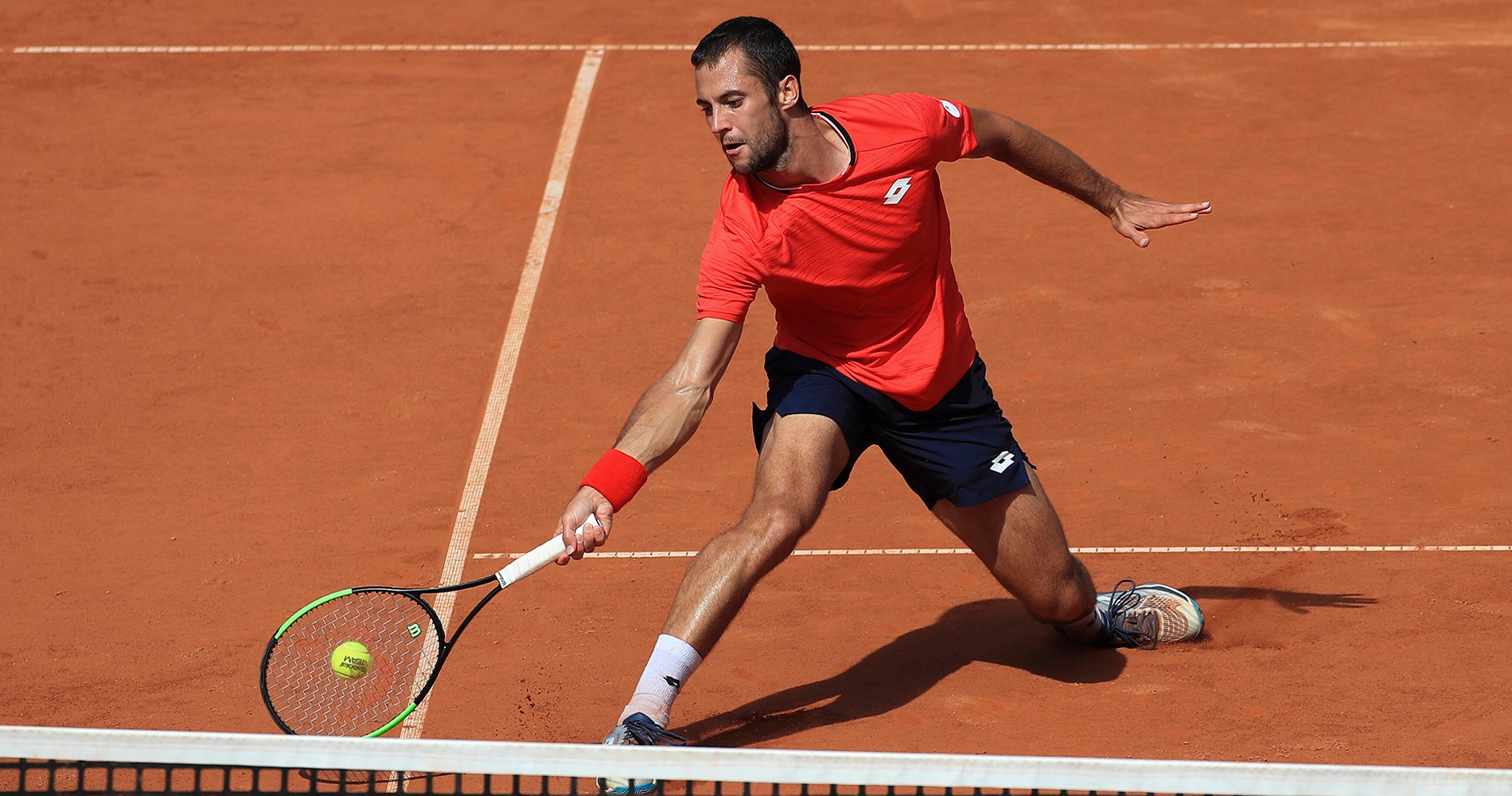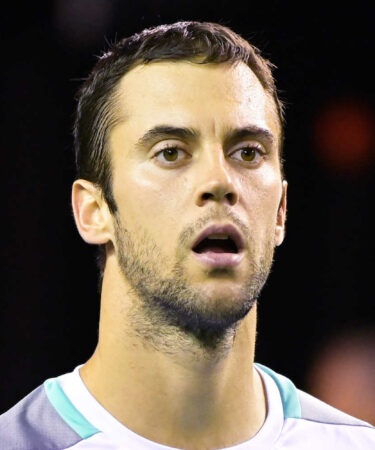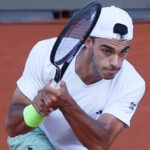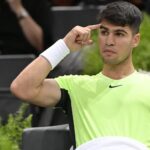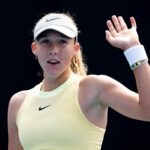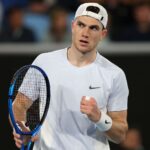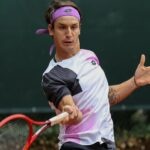No hurdle too tall for Laslo Djere, in tennis and in life
He is a good-natured guy and likes to keep to himself, but do not let that fool you; Laslo Djere is as tough as they come and he has been proving that his whole life, both on and off the court. And he also has two ATP titles to show for it.
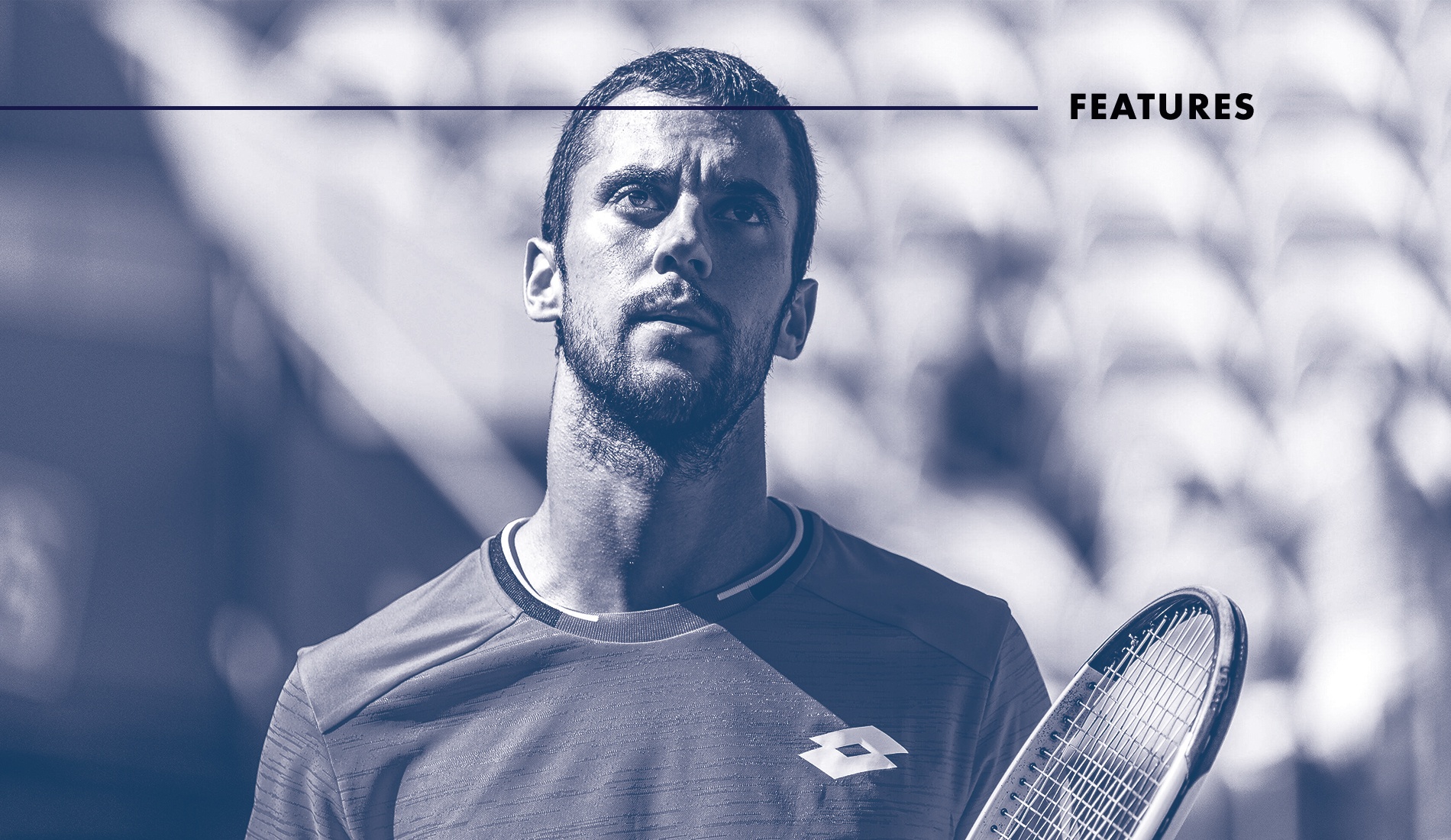 FeaturesMajorsFR_LasloDjere
FeaturesMajorsFR_LasloDjere
Up until the Rio Open, Laslo Djere had just one ATP Tour main draw win in 2019. But that week the land of coffee and samba irrevocably changed his career. After producing a masterclass when taking out Dominic Thiem in the first round, Djere went on to win the title — beating Casper Ruud en route and then rising star Felix Auger-Aliassime in the final.
Djere’s heartwarming speech at the ceremony captivated everyone’s attention and many in the tennis world shed more than a few tears as he dedicated the title to his late mother and father, both of whom had tragically passed away from cancer – mother Hajnalka in 2012 and his father Csaba just two months before the tournament.
“It was extremely hard both times, maybe harder with my mum as I was younger and I did not know much about life. I could have never imagined that the same nightmare would happen with my dad, but it did,” Djere told Sport Klub the day after winning the trophy in Rio. “Nothing is guaranteed in this world; not a day goes by that I do not think of them, but I feel an obligation and responsibility to continue. Both of them have made an extraordinary effort for me to be where I am and for that I am eternally grateful to them. I must go on and I must believe that they are still with me, following me.”
Laci, as his friends call him, was born in Senta, a small town in the north of Serbia with a population of just more than 20,000 people. His mother pursued athletics professionally and his father played football for a local club. But Csaba had always loved tennis and used to watch the matches of Pete Sampras, Andre Agassi and Goran Ivanisevic, so he took his son along with him to his first practice session. As it turned out, Laslo was pretty talented, and by the age of seven he started to travel around Serbia to compete.
“That is when I started dreaming about becoming a great player like all of those guys I was seeing on television.”
A cold warehouse – good enough to practice in winter!
The story about Ana Ivanovic and the rest of the ‘first wave’ of big names in Serbian tennis practicing in an empty swimming pool in New Belgrade has been told in the Western media many times, and for good reason. That kind of struggle and sacrifice makes you much tougher in a sport in which mental toughness plays a major role.
Djere’s own ‘pool’ was an abandoned warehouse in his hometown, as there were no indoor tennis courts. In the winter, he would hit there with no heating on the courts barely worth being called that.
“When I think of that time, the first words that come to mind are ‘struggle’, ‘fight’, ‘Cold warehouse’, and an awfully rugged court — actually, it was a carpet torn in many places,” recollects Laslo with a smile. “Those are some of the keywords, just grinding and scrambling so that things would become better someday.”
And they have become better, but not overnight. For most of his junior career, Djere flew under the radar as Nikola Milojević, also born in 1995, was a No 1 junior in the world and the biggest Serbian hope of the generation. Djere started 2012 outside of the top 100, but he was maturing physically step by step. In December he won the prestigious Orange Bowl, beating Elias Ymer in the final — and the week before he was the runner-up at the Eddie Herr tournament.
Personal struggles and a “blur” before the boom in Rio
When life hits us in the cruelest way, it is an incredible feat just to get out of bed. But Djere managed to win the Orange Bowl the same year his mom died at the age of 44, just like he honored his dad with the Rio title seven years later.
The transition to the professional level is the most delicate time in the career of a tennis player. It is when many of even the most talented are lost due to a variety of reasons – lack of belief and confidence, financial struggles, heavy competition…. But if there is one thing that Djere has proven, mainly to himself, it is that he can fight through adversity. In 2017 he played his first ATP semifinal in Budapest, and during that summer he played in four Challenger finals (won one), which enabled him to break into the top 100 for the first time on July 24
“My breakthrough could have maybe been quicker, but you have to take into consideration the trends in tennis in the past. Very young players have rarely been a part of the top 100 for a long time – Kyrgios broke that pattern in 2014 I think, then came Zverev, Coric, Khachanov…but just a handful of players. I was 22 when I entered the top 100, and that was not too late by any means. That being said, I wish I believed a bit more in myself and my skills during that transition period.”
Djere had finished 2017 inside the top 100 and just when he was supposed to build on that and begin to make inroads towards the top 50, cruel fate struck again as his father was diagnosed with colon cancer. He described the next 13 months as a ‘blur’ and he had to be strong for his sister and his father, who passed away in December 2018 at the age of 55.
“What does not kill me makes me stronger,” is a Friedrich Nietzsche sentence that is quoted, some would say too often. But why is that the case? Because again and again it has proven to be true; Djere captured his first ATP title in February of 2019 — and a 500-point title, no less!
The Nishikori match, panic and the coxsackievirus
The trophy did come out of the blue and brought with it bigger expectations for Djere, both from himself and the public. He handled it pretty well later in 2019 by making the semifinals in Sao Paulo and Budapest and the third round at the French Open. Indeed, he was extremely close to progressing to the second week at Roland-Garros, but he wasted a double-break lead in the fifth set of his match against Kei Nishikori.
“Yes, it was one of the most painful defeats, but I never dwell on anything for too long,” Djere said two days after capturing his second ATP title in Cagliari, Sardinia last week. “In defeats the most important thing is to learn something and I think I have learned from that match, so no regrets there.”
Djere also made the semifinals in Umag last year, but outside of clay he was not able to produce the same level of tennis and the same results. Although had always been a clay-courter, it was obvious that something else was up as he seemed distraught and totally out of sorts during his loss to countryman Miomir Kecmanovic in the first round of the US Open (6-2, 6-1, 7-5). It was his fourth consecutive first round loss.
Yes, sometimes you will see Djere complaining to his box about something and he might even throw a racquet to the ground on occasion. But he would do so timidly and he would also pick it up momentarily – Djere is known for his calm demeanor both on and off the court. And he speaks slowly, typical for people of Vojvodina — the region of Serbia he was born and grew up in. But as he was talking to Serbian journalists after that loss in New York, the words barely came out of his mouth as he was looking down at the floor.
“With everything that has happened in my family… How shall I put this… I have started to panic a little bit when it comes to health. I feel certain things that I have not felt before.”
One could tell that something was wrong. Our jobs as journalists is one thing, but as human beings we could not push it any further. However, Djere was willing to share more with us:
“One day I feel like my heart is not pumping the way it should, the next day I am shaking because I am cold, then the next day my head hurts and then after that nothing hurts, but I feel as if I do not have any strength left in me. Maybe for the last two years I have not taken care of myself properly and I am paying for it now. Something is definitely going on with my body, but perhaps I am mentally making it worse from my side. I am a bit worried.”
It was not in Djere’s head. He had just learned to put up with more and to be more resilient than most of us. When Djere visited the doctor back home, he was diagnosed with coxsackievirus and his blood tests showed traces of cytomegalovirus and mononucleosis (he dealt with those on his feet).
“Luckily, the coxsackievirus was detected on time, otherwise I could have developed myocarditis (inflammation of the heart muscle).”
Next stop – hard courts
After a prolonged rest period, Djere came back to play in Basel and Paris but was in no shape to compete. At the start of this year he reached the semi-finals in Cordoba, but due to injury he was not able to defend his Rio title and his ranking plummeted to outside of the top 70. When the season restarted, Djere did not look like the best version of himself, but as is usually the case he found his groove on clay winning five matches in Kitzbuhel — progressing to the semifinals as a qualifier.
Djere‘s style of play has always complemented well with clay because he hits the ball with a heavy spin, particularly from the forehand wing. Also, the slower surface allows him more time for his shots and his movement on clay is crisp and natural. In Serbian there is a saying “like a fish in the water.” That is how Djere feels on clay and it was pretty obvious last week in Cagliari. He beat world No 24 Dusan Lajovic, a solid clay-courter in Jiry Vesely, Italian star of the future Lorenzo Musetti (who retired when down 4-1 in the third set), and the last hurdle being 2018 French Open semi-finalist Marco Cecchinato.
Djere is now nearing the top 50 again. He stands at No 53 at the moment, but his next big goal is not ranking-related; he knows that it is necessary for him to improve on faster surfaces. But how?
“It is a totally different game on hard courts compared to clay, so I need to adjust my approach and to step outside my comfort zone. That consists of positioning myself closer to the baseline, playing more aggressively, and possibly coming to the net. I think that tactically I have to make a change, but I need to improve my shots as well, above all my serve. I think I am starting to figure it out.”
And judging by what we have seen from Djere in his career and in his life so far, he will figure it out. Again.
